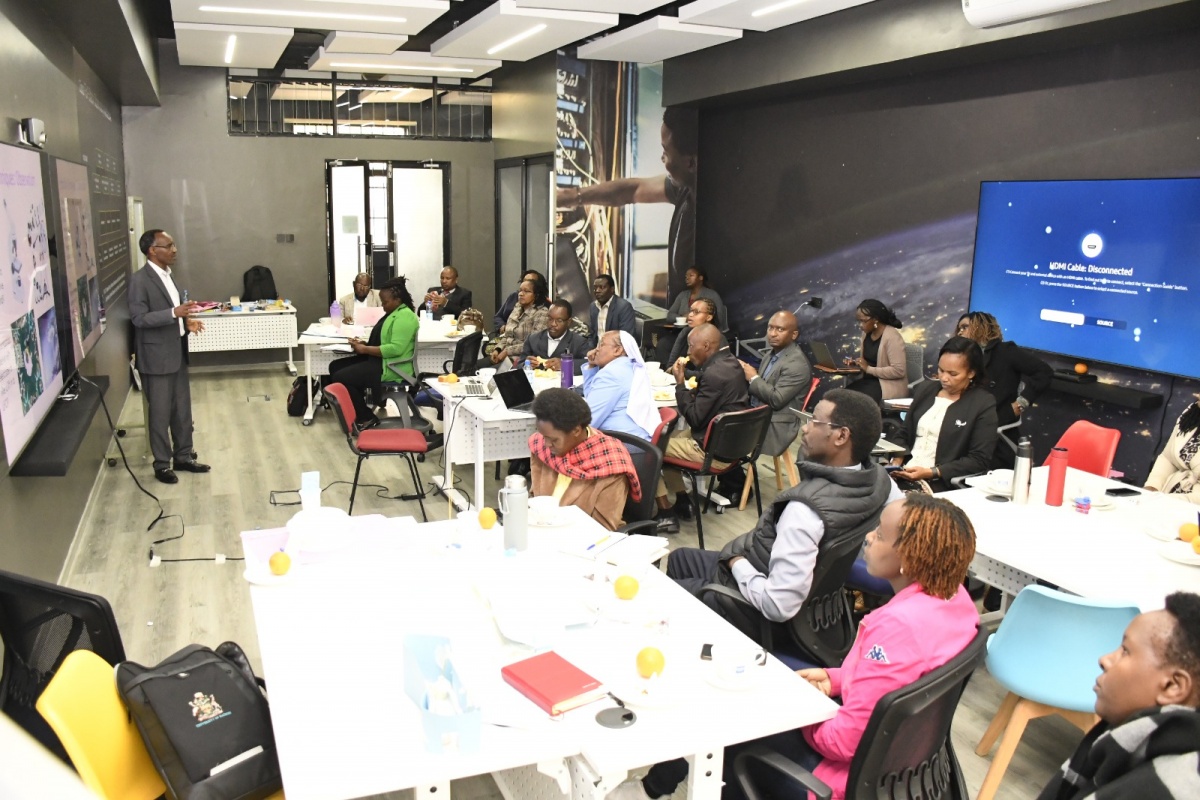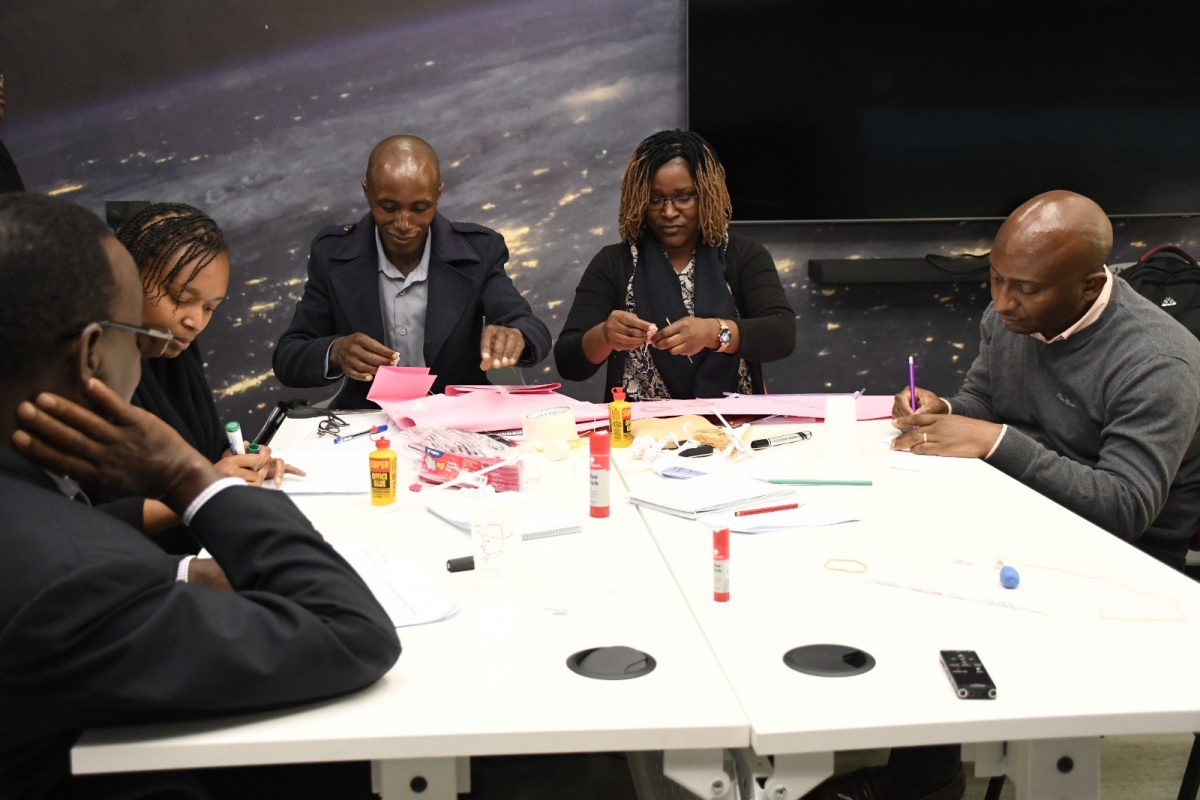C4DLab Conducts Cross-Faculty Innovation Training on Design Thinking and Problem-Based Learning
The C4DLab is running a week-long training program for faculty on Design Thinking and Problem-Based Learning, innovative problem-solving approaches. The training, aptly dubbed “Innovation Training” for revolutionary approach to solving real-world problems, is currently underway in the PhD room of the Department of Computing and Informatics.
The training has attracted participants from various faculties within the University of Nairobi and is set to conclude on Friday, September 6, 2024.
This training programme aligns with Afretech's Innovation and Entrepreneurship Pillar, headed by Dr. Sam Ruhiu, the primary facilitator of the workshop.


Dr. Ruhiu emphasized the need for a paradigm shift among university faculty, stressing the need to move beyond mere scholarly research results and translate them into practical innovations that address real-world needs. He highlighted the importance of a mental shift towards entrepreneurship, which involves creating products and services that meet consumer demands as a way of completing the innovation pipeline.
Historically, many valuable research projects by both faculty and students have stalled at the research results stage, failing to progress to innovation and entrepreneurship. This training aims to rectify this trend.
The morning session provided a foundation for Design Thinking, covering its historical development and case studies from renowned global academic institutions like Stanford, MIT and University of Colorado in the U.S., and Aalto in Finland.
The session also explored notable innovation failures, such as those by Thomas Edison (the inventor of the light bulb), AT&T, and Warner Annex. These failures were often attributed to a techno-centric focus rather than a user-needs-driven approach.
The training's goal is to equip educators with practical tools and strategies to foster creativity and critical thinking in the classroom. By enhancing faculty's ability to drive innovation, the training seeks to prepare students for future problem-solving challenges.
The specific objectives of the training include:
- Learning how to apply the Design Thinking process to identify and solve real-world problems.
- Encouraging students to develop innovative solutions through Design Thinking.
- Empowering educators to use Problem-Based Learning to create student-centered learning environments that foster active engagement, collaboration, and critical thinking.
The second session, co-facilitated by Dr. Ruhiu, Mr. Peter Oketch and Ms. Caroline Jelagat, involved a number of team-building exercises where participants from different faculties worked together to construct a tower. The exercises demonstrated the importance of teamwork, a crucial aspect of Design Thinking.
The session concluded with a reflection time, during which participants considered the most challenging aspects of the task, individual roles, and the emergence of leadership within the group. Then there was Experience Design, where a two-member team designed a gift-giving experience for the partner in turn and each evaluated the experience through discovery questions.
We are able to share the photos, or any other material, should your office need them. much as I think your cameraman took more professional photos. (We only had a phone.)
Instructively, since the event is on for the next few days, we are going to build on the above story and will certainly share the latest version at an appropriate time.
As we appreciate the role your office plays in amplifying the university's voice on important matters, we would be more than glad if your office could run this story to give it the necessary publicity.
We are looking forward to collaborating with you even more for future events.
